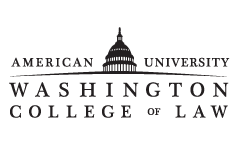Article Title
Abstract
Beginning with Massachusetts in 2003, the courts and legislatures of many states have had to decide whether same-sex marriage is or should be a fundamental right under their respective constitutions. Although only five states and the District of Columbia legally perform same-sex marriages, a few other jurisdictions are in the process of proposing laws moving in that direction. However, the vast majority of states are holding fast to the traditional heterosexual definition of marriage. Thirty-eight states have adopted some sort of Defense of Marriage Act, constitutional amendment, or similar measure that defines marriage as the union between one man and one woman.
In May 2009, the D.C. Council passed a law requiring the District to recognize same-sex marriages performed in other jurisdictions. Within a few weeks after the Council vote, a group of ministers and other same-sex marriage opponents formally approached the D.C. Board of Elections and Ethics with a referendum designed to block the city from recognizing such marriages. However, D.C. referendum law prohibits referenda that authorize unlawful discrimination under the D.C. Human Rights Act (the “Human Rights Act” or the “Act”). On June 15, 2009, a two-member D.C. elections board blocked the referendum proposal, claiming that same-sex marriage is protected under the Human Rights Act. The proponents of the referendum appealed the decision to the D.C. Superior Court. The Superior Court upheld the Board’s decision and declined to delay enactment of the controversial bill, reasoning that the ballot initiative process was still an option even after the time for a referendum had lapsed. The law, therefore, went into effect on July 7, 2009.
On September 1, 2009, several D.C. residents filed the “Marriage Initiative of 2009” with the Board. The initiative sought to codify the traditional definition of marriage in order to overturn the law recognizing same-sex marriages performed in other jurisdictions, and to prevent the District from altering the definition of marriage in the future. Both the Board and the Superior Court denied this second petition, again reasoning that a popular vote on the issue would be contrary to the Human Rights Act protections.
In the following months, the D.C. Council and Mayor instituted an additional bill that would allow same-sex marriages to be performed within the District. Traditional marriage proponents again attempted to propose a referendum designed to prevent the bill from taking effect. For the third time, both the D.C. Board of Elections and Ethics and the D.C. Superior Court declared that allowing a popular vote on the same-sex marriage issue would condone unlawful discrimination on the basis of sexual orientation under the D.C. Human Rights Act. Since the Court was not willing to stay its decisions on the two proposed referenda, appealing those decisions became moot once the laws took effect, and defenders of traditional marriage were only able to appeal the Superior Court’s decision regarding the Marriage Initiative of 2009. In Jackson II, the D.C. Court of Appeals upheld the Superior Court’s ruling regarding the proposed initiative, and an application for certiorari was denied by the Supreme Court.
Because much of the Board’s, the Superior Court’s, and the Court of Appeals’ reasoning in subsequent decisions depends on and largely follows the Board’s and Superior Court’s analysis of the permissibility of the original proposed referendum, this Note focuses on the litigation surrounding that referendum. In doing so, this Note analyzes the District’s voting laws and the Human Rights Act, concluding that, despite the courts’ rhetoric, neither D.C. law nor judicial precedent prevent any registered, qualified elector or electors from the District of Columbia from ordering a referendum or an initiative for the purpose of overturning, by popular vote, unwanted same-sex marriage legislation.
Part I discusses the background and specific provisions of D.C. voting laws that apply to the same-sex marriage issue. Part II examines the language and purposes of the D.C. Human Rights Act to determine whether it expressly or implicitly protects same-sex marriage. Part III analyzes the Board’s and the D.C. Superior Court’s decisions regarding the original proposed referendum, and supports the legality of allowing the voters in the District of Colombia to have the final say in their jurisdiction on the same-sex marriage issue. Part IV summarizes the same-sex marriage debate, and discusses some implications and consequences of legalizing same-sex marriage in order to highlight some of the more prudential reasons for allowing the voters to avail themselves of the referendum/initiative process to preserve or abandon the traditional definition of marriage.
Included in
Civil Rights and Discrimination Commons, Constitutional Law Commons, Estates and Trusts Commons, Family Law Commons, Human Rights Law Commons, Law and Politics Commons, Law and Psychology Commons, Legislation Commons, Religion Law Commons, Sexuality and the Law Commons, Social Welfare Law Commons, State and Local Government Law Commons
